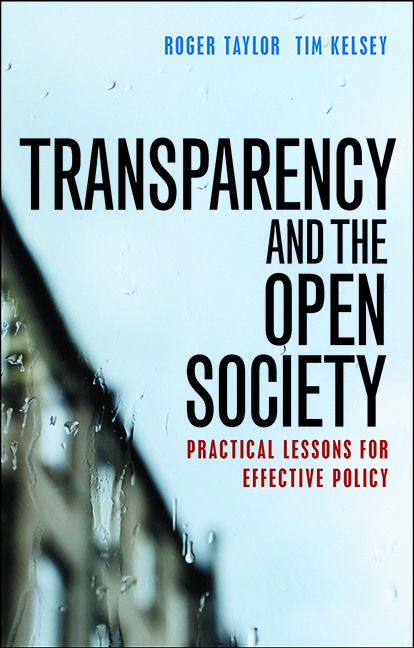12 - Open data and forced disclosure
Published online by Cambridge University Press: 05 April 2022
Summary
‘Open data’ refers to data that is routinely published and that can be used by the public. Ideally such data is published under open data licences that allow reuse in any circumstances. However, for our purposes, we are interested in any data that is publicly accessible and can be used. The data used by the Romanian Coalition for a Clean Parliament was not available under such licences but was used to powerful effect nonetheless (see case study below).
Forced disclosure refers to statutory or regulatory requirements on a particular organisation – whether state or private – to put certain specified information in the public domain. Common examples are requirements for companies to publish accounts and names of directors and shareholders; registries of land or other assets; and requirements for politicians to declare gifts.
Qualitatively, there is nothing essentially different about information made available as part of a social audit or public reporting programme as opposed to an open data or forced disclosure programme. The latter are generally more granular and tend to be delivered in the form of databases for analysis rather than as reports to be consumed.
The important difference is the philosophy behind such schemes. Forced disclosure programmes work on the basis that if the information was made available to the customer, it is then their responsibility to use it and their self-interest should give them an incentive to do so. Open Data programmes are posited on the belief that people will pick up on such information and make use of it. They are based on the idea that information on its own is enough – or rather that in the right circumstances it can be enough.
This optimism is in large part based on the potential for technological innovation to change the relationship between citizens, government and data. The combination of cheap and widespread access to computing power to interpret and analyse data, as well as the existence of web or internet-based communications systems to turn such analysis into information for specific audiences, has certainly made previously inconceivable forms of citizen-driven data activism possible. The hope is that there will be a market opportunity for information businesses to take public information that might be too complex for most people to deal with and turn it into actionable advice on what to buy or who to vote for.
- Type
- Chapter
- Information
- Transparency and the Open SocietyPractical Lessons for Effective Policy, pp. 195 - 208Publisher: Bristol University PressPrint publication year: 2016

